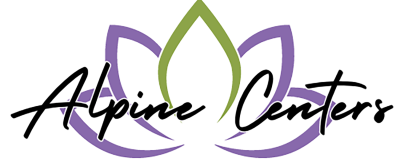Alpine Centers Addiction and Mental Health Healing
Welcome to Alpine Center for Personal Growth & Alpine Medical Services
Medical
Outpatient Detox for Alcohol and Opiates
Mental Health
CBT/DBT In Person and Online
Addiction
Outpatient Group and Individual Therapy
Recovery and Preventing Addiction Before it Occurs
- January 25, 2017
According to the Center for Disease Control, the leading cause of death in the United States is drug overdose, which far outreaches car accidents and shooting deaths combined. Two in every three people have been touched by addiction in one way or another. In 2014, opioid overdoses were involved in 28,647 deaths in the US. Because of this nationwide epidemic, we as a whole need to promote change in these affected individuals before the problem of addiction begins.

First, let us define the problem. Scientists have found that the problem of addiction lies in the most primal center of our brain, the mid-brain. Just as the oldest layers of rock are closer towards the center of the earth, the reasons for addiction are located closest to the center of the brain. Therefore, to solve this problem, let us look deeper.
The newer part of the brain: the pre-frontal cortex, lies the decision making part of the brain. When addiction occurs, the pre-frontal cortex’s volume is lessened, if you will, and the midbrain’s volume is turned up. The midbrain works on a reward based system. Eat=dopamine, sex=dopamine. DRUGS=DOPAMINE. The volume is so loud, that it is all we can hear.
Drugs create huge spikes of dopamine in our brain, which also resets our hedonic set point (basically the bar of where our ‘normal’ feeling is. That is why doing things such as going out to eat, seeing a movie, or an otherwise fun activity, no longer sounds or seems pleasurable, because the addict only knows one way to get the dopamine spike their brain NEEDS.
NEED, not WANT.
The feeling of need surrounding substance abuse is just as strong as our urge to eat food, self-defend when danger is present, or even to breathe in and out. This is why the behavior of the addict can become so ugly. “Out of desperation Joe stole money from his mother’s wallet”. Society tells us we should condemn Joe, but why? That wasn’t an episode of bad behavior; it’s a display of the human brain, against all willpower, acting primal with addiction by its side. The frontal cortex volume is far too low for the person to hear why they shouldn’t have stolen from the person just to get high. All they know is that they needed to.
That is why addiction is a disease and not a moral feeling. There is a defect in the brain, and therefore bad behavior can sometimes be the result. Just as we wouldn’t punish a diabetes patient for going out of remission, we shouldn’t punish addicts for relapse. Once a diabetic patient knows the disease is negatively affecting their health again, they are responsible for maintaining their doctors’ appointments, eating healthier and taking medications. The addict is the same way, once they know they have the disease and experienced a relapse, they are responsible for taking care of their recovery.
So we as a society are beginning to accept that addiction is a disease, that there is no cure, and that it can be treated. But why start before it’s too late? Why go through the pain and suffering addiction causes the addict and all of the family surrounding them? There must be a solution. Preventative Maintenance.
The truth about addiction is that it is a major problem and will likely continue to kill millions of people worldwide despite our best efforts. But we can help prevent it. These are several preventative maintenance programs that could be made available to the public without the stigma or shame:
• Education in schools on the reality of drug and alcohol abuse
• Replacement behavior
• Daily meetings
• Recovery Yoga Classes
• Peer support
• Health and nutrition training
• Leadership training
• Co-operative farming
• Emotional support
• Sleep format
• Spiritual enlightenment
• Relationship success
• Competitive sports
“It’s time we make a change, and do the best we can for ourselves and others.”
Stephen Goddard
